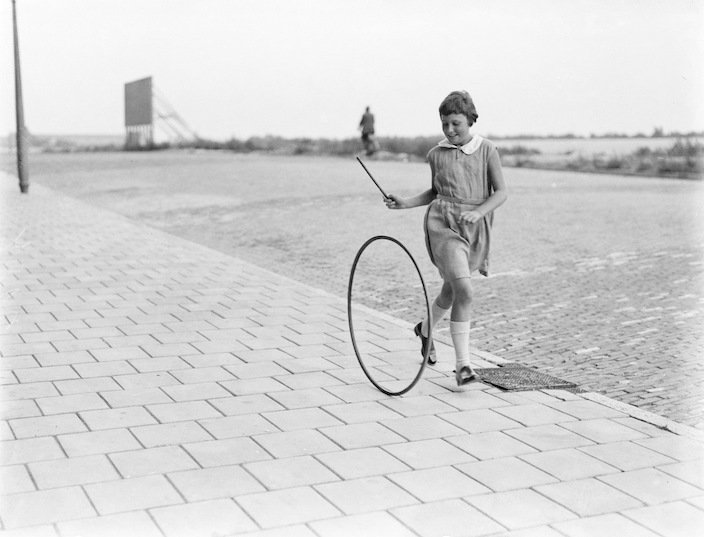Shot of Science: Flu, Stress, Lying, Play and Urban Life
Labour and the stressy placenta
Every year about 15 million babies are born prematurely – that is before the 37th week of gestation – and the number is rising. In 2013, nearly 1 million babies died as a consequence of premature birth, making it the leading cause of death among children under 5 years of age worldwide. Those who survive, often have to deal with visual, hearing and learning impairments.
No wonder scientists are trying to understand every detail of the mechanisms which trigger labour. The two main hormones involved in the onset of labour are progesterone, produced by the placenta, and cortisol, produced by the foetus. While progesterone is the hormone that keeps the pregnancy going, the stress hormone cortisol signals to the placenta that soon it won’t be able to satisfy the growing foetus’ needs for oxygen and nutrients. As the foetus grows bigger, he produces more and more cortisol, which reaches the placenta and, eventually, triggers labour.
How exactly? A team of scientists has recently found a molecular switch in the placenta that turns on the gene for the production of a labour-inducing hormone, corticotropin-releasing hormone (CRH), in response to the foetus’ cortisol.
The amazing thing is that, unlike in the brain, where CRH is normally produced by the hypothalamus of both men and women in response to stress and leads to cortisol production with a process of negative feedback (increased levels of cortisol switch off CRH production), the CRH produced by the placenta is controlled by a positive feedback (the more the cortisol, the more the CRH, the more cortisol, etc.).
The large quantities of CRH detected only in pre-labour women must therefore originate from the placenta rather than from the mother’s brain, leading the researchers to believe that maternal stress levels don’t determine the start of labour. This discovery opens the way to the development of drugs that might turn off the CRH switch in order to prevent pre-term labour.
In the meantime, for goodness’ sake, don’t stress that placenta!
Urban ecology

Only 4% of the studies published between 2005 and 2010 by the world’s top ten Ecology journals involved urban and suburban areas.
Still, urban areas host more than 50% of the world’s human population today and are estimated to account for two-thirds of it within the next forty years.
It’s good news, then, that this year’s annual meeting of the ESA (Ecological Society of America), which took place in Baltimore between the 9th and the 14th of August, saw no less than 450 (roughly 10% of the total) presentations, posters and events that touched on urban issues, ranging from Chinese immigrants in New York City relying on fungi and street trees for foods and medicines to urban streams found to be as diverse as wild ones.
“The city is no longer ‘the other’, the negative example contrasted with the pristine,” says Jon Christensen, a historian of science and the environment at the University of California, Los Angeles. And, with standing room only for the urban ecology lectures at this year’s ESA conference, urban ecology is perhaps growing as fast as the urban ecosystems themselves.
So if, at the nightclub, you see somebody checking out the human biodiversity, don’t be too quick to judge. Maybe the ecologists have arrived.
Play more, grow less (yes, it’s OK)

Don’t use energy unless you have to.
This isn’t the motto of a couch potato club: it’s one of the tenets of the evolution theory. Energetically demanding activities simply won’t survive if they don’t carry benefits worth the expenditure.
With this in mind, scientists have so far justified the existence of play with two hypotheses: that animals only use their surplus energy for playing, and that play is beneficial in developing motor and social skills.
Now a team of scientists has tested these assumptions on wild Assamese infant macaques and they’ve found that the young macaques who played more (mostly boys) gained better motor skills but also – here comes the surprise – grew more slowly.
These results indicate that the energy invested into play might not come from a surplus after all, but from what would otherwise have been used for physical growth. If animals preferentially devote energy to play over that all-important process of growth, the benefits of play must be very valuable indeed, argue the scientists.
So, play over growth is Mother Nature’s choice. If human mums agree, is yet to be seen.
Getting closer to…(ta-dah)The Universal Flu Jab
Flu jabs are almost as seasonal as women fashion: before they reach the masses, they’re already outdated.
But maybe this won’t happen in future. Scientists now seem closer than ever to a universal flu vaccine that would protect us against all types of flu.
Instead of targeting the variable heads of the protein that the virus uses to infect a cell (hemagglutinin), they’ve focussed on the stem, which stays more or less constant between one flu strain and another. Trying out with different sections of that region, they have created a number of vaccine candidates, the best of which completely protects mice against H1N1 and H5N1 and significantly reduces fever in monkeys infected with the H1N1 strain.
It looks like reluctant students should start thinking of new excuses for missing school.
Liar, liar, pants on fire…
… your testosterone is high and your cortisol is dire.
When researchers asked volunteers to complete a Maths test, mark it and report their scores to earn a money prize (the higher the score, the bigger the prize), they found that the people who overstated their tally had the highest levels of testosterone and cortisol in their saliva.
“Testosterone furnishes the courage to cheat, and elevated cortisol provides a reason to cheat,” said Prof. R. Joseph –professor of Psychology at the University of Texas in Austin –, as testosterone lowers the fear of punishment and cortisol is associated with discomfort and stress.
There’s more: after cheating, a decrease in the level of cortisol was accompanied by a powerful stimulation of the reward centres in the brain, thus confirming what scientists believed but had not yet been proven: cheating can act as a stress-reliever. I hadn’t heard that one yet.
